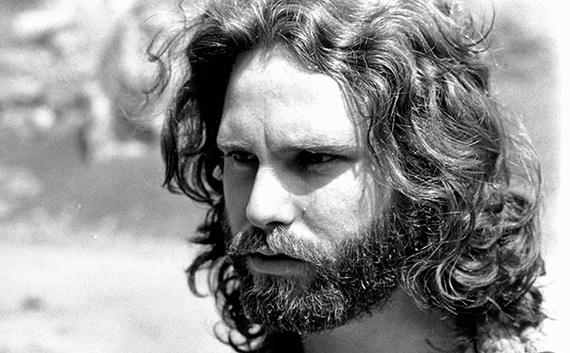How much do we know today about the life of Jim Morrison, one of the global music industry's most iconic artists who died forty-three years ago?
Morrison was, and is, for most rock music fans one of the biggest sex symbols of his time. He was the first rock super star, an artist who rose to the status of a demi-god.
For music lovers and aficionados of music history, he was a unique artists and heir to the Beatnik legacy, having forged the link between poetry and rock and blues.
For mystics, Morrison was the embodiment of spirits and ancient deities. Perhaps a seventy-something black man who had spent his life on a cotton plantation in the south before being reincarnated in the body of a white young man from Florida. Or maybe an Indian shaman whose spirit had migrated to the childlike soul of the future rock star.
I'm sure that for many of his contemporaries, Morrison was nothing more than a mindless young man with good looks and a voice to match, a man whose life ended in a sea of drugs and booze.
For a few, he was also something else. Perhaps most importantly. He was an artist who tried to express himself through other art forms in a quest to break the one-dimensional mold of the rock idol. But above all, he was an intelligent man, a man of rare lucidness of vision of the world taking shape.
In a famous interview with Tony Thomas on CBC Radio broadcast May 27, 1970, Morrison had predicted that in the coming decade, those "people who are able to assemble masses, huge masses of people into one spot, as we witnessed in pop festivals in the last two or three years" will be "the major influences on mass culture". He called those people "connectors". He also said he thought that the next heroes would be "a more intellectual sort. Political activists and perhaps scientists and computer experts."
It's incredible that a twenty-six-year-old man, for whom a lot of people thought he had burned his brain with his wild lifestyle, could pick out, with such clarity, the three types of people who would wield the greatest influence on our world in the years to follow.
Political activism in the 1970s and the emblematic artists of that era staked out clear political positions on vital social issues, creating the shifts and balances humankind feels today.
As for computers, could Jim Morrison have imagined what a pervasive influence they would become in our lives? Had he sensed this but decided to express it in the simplest possible terms without analyzing his vision of the future given people's limited understanding of it at the time?
And what influence do these three fields, activism, science and computing, singled out by the charismatic Morrison exercise today?
Let's assume that by virtue of his artistic nature, Morrison viewed musicians and bands as connectors. A reasonable assumption as their influence can extend to tens of thousands of fans.
Unfortunately, the music industry is now so controlled that I doubt Mick Jagger or artists now enjoying the lifestyle of senior industry executives can claim to be in the vanguard of social activism or opposition even to a system they're now a part of.
In my humble opinion, activism today is also completely manipulated of the influences of the media conglomerates seeking to advance their own interests. Even isolated actions around the globe often become a useful component of the product known as commercial television. On CNN's "Heroes", it's not feeding scores of poor children that matters but rather whether this will be more attractive to audiences than someone providing an African village with clean drinking water. In other words, it's a glossy competition of good deeds whose winner must outshine the goodness and selflessness of other activists.
So where do we find Jim Morrison's heroes today?
One answer might point to those who understand the world of computers, or experts as Morrison referred to them, and how deep they've penetrated society.
Connectors. Social media experts. Influential bloggers. Today, these are the people who are able to assemble masses, albeit in front of their screens.
Internet-based political activism. Did we see a sample during the Arab Spring? Perhaps.
Perhaps in the near future someone, with an enormous influence in the online world and millions of followers, will create a Facebook event and announce the specific date and time when what comes next will be revealed. If, that is, something follows natural death. The eternal question tormenting the human soul. Is the day not far off, when we might see the first online religion being born?
Until then, and with Riders on the Storm playing in the background, I'll remember my cherished Jim Morrison. The social and political visionary and, with his help, continue my efforts to create more questions.

